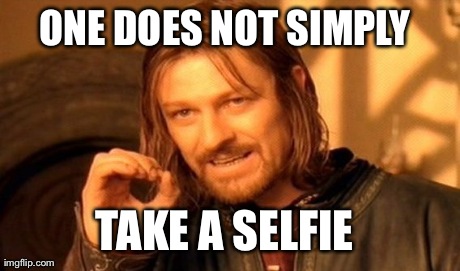
In 2013 the term “selfie” was named by Oxford Dictionaries as the word of the year. Its rise in popularity stemmed from its continual usage on social media platforms such as Instagram, Snapchat and Twitter. Celebrities, Presidents, Prime Ministers and “ordinary” people all indulge in the activity of taking selfie. So what does this neologism actually mean? The OED defines the informal noun “selfie” as “a photograph that one has taken of oneself, typically with a smartphone or webcam and uploaded to a social media website”. This act has become a modern craze with mobile phone manufactures targeting its buyers with incentives such as free “selfie-sticks” and sharper camera resolution. Freud would argue that inherent narcissistic tendencies within every social being is the reason for the emergence of the selfie culture. Arguably, self exhibition has become the focal point of human interaction.
This social phenomenon invites analysis, as many selfies have been at the centre of news making headlines. For instance, Kim Kardashian is notorious for her ability to take “perfect” selfies. She uses the selfie as a form of expression. However, on multiple occasions the selfies she posts are interpreted as feminist statements, even though her intentions may solely be to exhibit. In 2017, Kim posted a picture of herself naked on Twitter, captioned: When you’re like I have nothing to wear LOL. She had presumably taken the selfie in the comfort of her own bathroom. The image shows Kim (naked) holding her smart phone (to capture the moment), whilst pouting in front of a mirror. The very act of taking the picture is visibly embedded within the selfie. The intimate parts of her body censored with two strips. For Kim the selfie may have symbolised a moment of overcoming and celebration. However, once she posted the image online, the backlash she received was astonishing. She was publicly slut-shamed, and slammed as a terrible mother for posting pictures of herself nude. Within hours of posting the image, news outlets were discussing the appropriateness of the image, debating whether or not Kim had “crossed the line”. The problem Kim and many social media users face is that once an image is posted on the web it cannot be retrieved, it is out there for everyone to see and scrutinise. The line between public and private no longer exists. Additionally, the selfie-culture has multiple informal rules in regards to posting pictures. Users are able to post pictures of themselves regularly without constrain. However, the “appropriateness” of each image is policed by the same users who also participate in the act of posting images.
It must be noted that not everyone was critical of Kim’s selfie. Many people saw Kim as the victim of online slut-shaming, and slammed journalists such as Piers Morgan for their mysoginist views. According to many, Kim had the right to take ownership of her own body, and post nude images without being criticised. Twitter users compared Kim’s selfie to the image of Justin Bieber bearing his buttocks. Both images depicted similar content, yet Justin Bieber was praised for his “sizzling abs” and “cute butt”. The public’s reaction reinforces and magnifies the social issue of double standards. The selfie becomes a medium to question social attitudes and initiate discourse. In other words, social media becomes a space to reinvent gender expectation, and “create a radical new aesthetics of the female body”.
Derek Conrad Murray sees the social media as a sphere where political activism can take place. He argues that “young self-proclaimed feminists negotiate this space for political action”. This is evident in the Kim Kardashian controversy. She used her controversial selfie to write an essay on slut-shaming, and embracing female sexuality. Kim expressed her astonishment in an interview stating; “they have seen me naked like 500 times and the censor bar literally was probably more covering than a bikini. I could not grasp why people were still outraged”. The image that was supposed to be celebration of Kim’s post maternity body. Instead it was transformed into a statement which challenged sexist ideologies and protested against slut-shaming.
I cannot help but wonder, if women are still being subjected to distasteful insults online has feminism truly achieved all of its objectives?